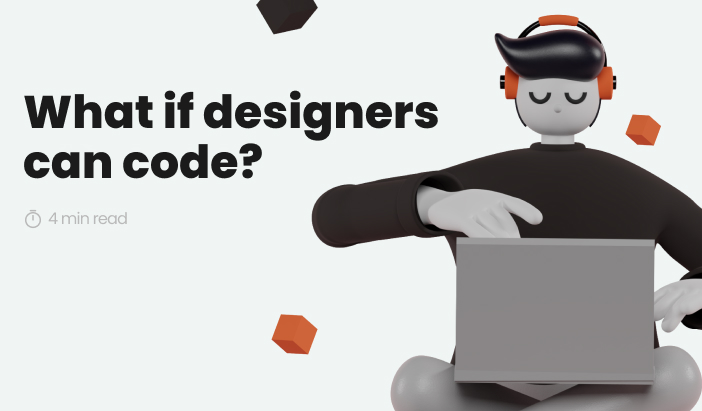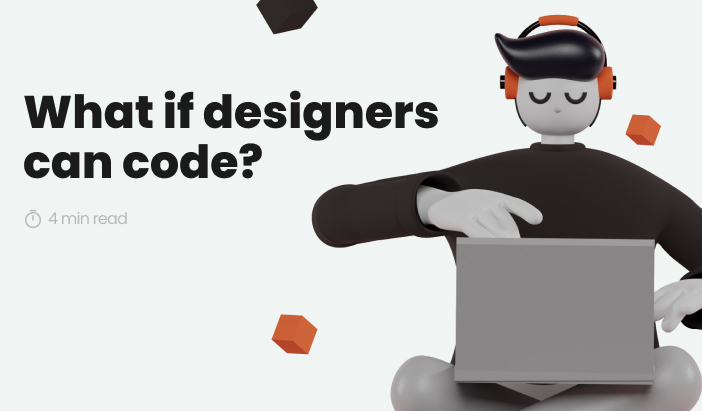What if designers could code<strong>?</strong>
<p>As digital products continue to play a significant role in our daily lives, the collaboration between designers and developers has become increasingly important. The rise of digital platforms, websites, and mobile applications has led to increasing demand for designers who can code. While the roles of these two disciplines are traditionally separated, designers can greatly benefit from learning to code.</p>
<p>Imagine being able to speak the same language as your developer buddies and being able to understand each other's perspectives without needing a translator! By learning to code, designers will be able to do just that. It makes communication and collaboration on a project more of a breeze, and instead of just providing visual specifications, designers who understand code can also discuss technical requirements, constraints, and opportunities. This allows them to work together to find the best solution for a particular design problem and to create a product that is both visually appealing and technically feasible.</p>
<p>Another perk of designers learning to code is the ability to create prototypes and mockups faster. With the basics of programming, designers can take their designs from concept to reality without having to rely on developers to implement their ideas. This allows for faster iteration and testing of design concepts and eliminates the need for a handover between designers and developers. This makes the whole process more efficient.</p>
<p>Designers who understand code can also create more inclusive user experiences by preventing common oversights. Without knowledge of code, designers may not be aware of the importance of accessibility features. By understanding how to code these features, designers can ensure that their designs are inclusive of users with visual, auditory, motor, and cognitive impairments. This will prevent oversights such as forgetting to specify an alt text for images, which would make the digital product less accessible for users who rely on screen readers. Overall, understanding code can help designers create designs that are not only visually appealing but also inclusive and accessible for all users.</p>
<p>And let's not forget about the job market! Having knowledge of code can open up more opportunities for designers. As digital projects increasingly require knowledge of both design and code, designers with these skills will be in high demand. The ability to code can also open doors to new job opportunities, such as front-end development, prototyping, and even product management. It can also make designers more versatile and valuable employees, who can take on a broader range of responsibilities within the organization.</p>
<p>While it is not essential for designers to know code, it can bring a great deal of advantages for both the design process and the designer's career. Learning code can improve collaboration with developers, speed up the design process, create better user experiences, eliminate the need for the handoff process and open up more job opportunities. With the ever-growing digital landscape, designers who can code will be better equipped to navigate the digital ecosystem and can help to create better products that meet the needs of both businesses and users.</p>

